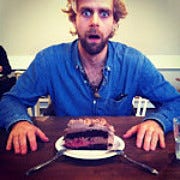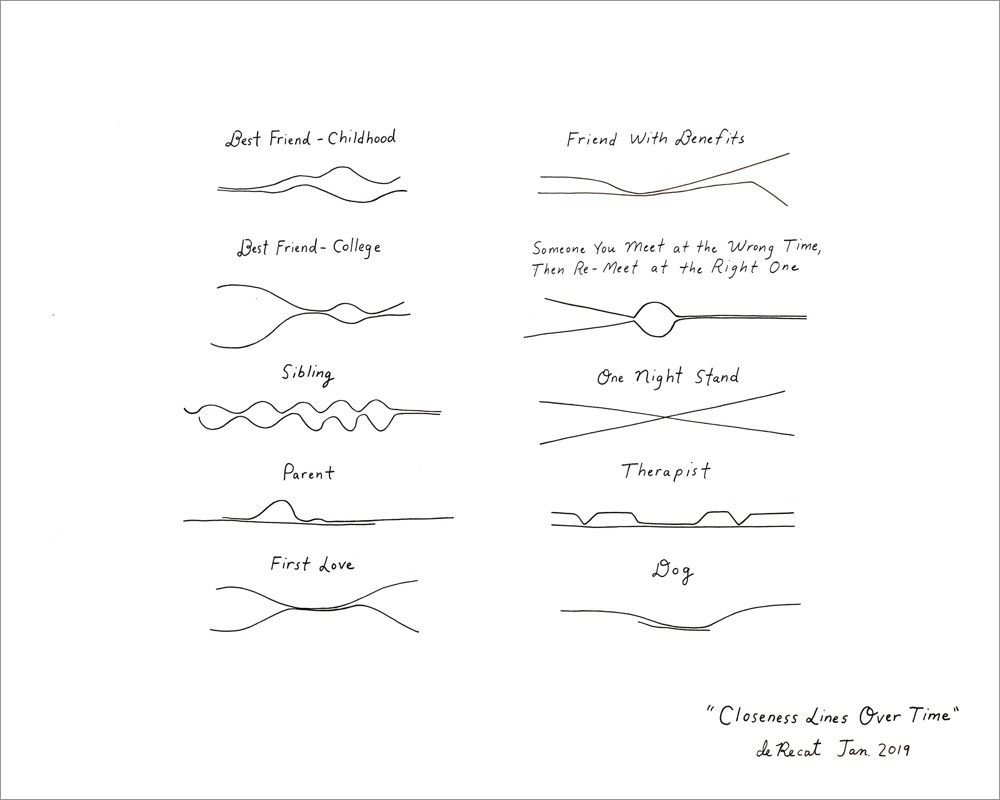Making Friends With Rejection: From 😭 to 😜

Hilariously, this rejection letter was sent without the correct postage. I had to cycle to my local Royal Mail depot and pay £0.11 in excess postage, plus a £1.00 administration fee.
Happy Friday!
This week I believe in rejection!
It's not every week that I read a book cover-to-cover in under 48 hours.
Admittedly, at only 200 pages Rejection Proof by Jia Jiang is a quick read, but I absolutely guttled those pages.
Why? Because Jiang offers a creative solution to a problem that I think almost every live human being struggles with: rejection.
This video is how I first heard about Jiang's 100 Days of Rejection experiment. It's a good primer for what follows. Enjoy.

Jia Jiang talks about 100 Days of Rejection
Dave's Short History of Rejection
My history of rejection is short not because my life has been an endless cavalcade of glorious successes, but because, for the most part, I have gone to great lengths to avoid sticking my neck out and asking for anything, you know, worthwhile.
~
Example 1: Romantic Rejection
It took me until 2013 before I first told someone I really liked that I really liked them. Terrifying.
They did indeed reject my approach, but frankly by that point I didn't care. The panic over saying anything to this person far outweighed the disappointment of the negative response by about a million to one.
This million-to-one ratio is about the same for 'Love interests I longed to approach' against 'Love interests I actually approached'.
Combined with my everyday fear of social rejection, the number of missed opportunities for connection with other human beings is staggering, and all because of an egotistic, and unnecessary, fear of rejection.
~
Example 2: Book Rejection
For the most part, I have avoided professional rejection by not taking a profession. When I have held jobs, I have tended to do the work and then go home, not doing anything that would call attention to my work and thus invite rejection (or, indeed, approbation).
I have, however, written several books. Occasionally, I have sent the manuscripts to agents and publishers and have been rejected every single time.
I think I've received about 5 rejection letters in my life, ever (including the expensive one photographed above).
J.K. Rowling famously received 12 rejections for Harry Potter alone; William Golding got 20 for Lord of the Flies; Carrie by Stephen King garnered him 30 rejections before selling over a million copies in its first year and being turned into, not one, but three feature films, and, improbably enough, a musical.
It's pretty easy to avoid rejection if you don't put your work out there. I think it's fair to say that I haven't embraced professional rejection despite knowing full well that it is an essential part of the process.
~
Example 3: Rejection on the Road
Hitchhiking has taught me a lot about rejection. Standing on the side of a busy road with a smile and a sign, or walking up to strangers in service stations and begging for a lift: it's a cold recipe for relentless rejection.
Even so, somehow I've always managed to get where I was going. Somehow, as Jiang says, 'rejection has a number' and persistence usually pays off if you're willing to be flexible.
My least successful hitchhike involved about 3 hours of rejections – but I still got a ride (after changing my approach). How's that for rejection? Pretty good, I'd say.
In most of the rest of my life, however, I give up after a single rejection (if I even get that far). Why is that?
~
Example 4: Critical Rejection
When me and Beth took Foiled to Edinburgh in 2016, we wanted to be judged. So much so that we actually paid a PR company to get critics in to review our show. We positively invited rejection.
The hefty weight of that judgement was shared between us, but it still wasn't very nice when we got a stinking review from a well-respected critic.
I don't think we ever seriously doubted our material, and it helped that the audiences didn't seem to either, but the review was (and still is) there in black and white on the internet. A fulsome rejection of everything we'd worked so hard to create.
In this case, there was nothing we could do except rationalise what he had to say (it's just one opinion, it was based on a preview, and we'd already addressed some of his criticisms) and use it as motivation to make the show the best it could be.
We didn't shut down the PR company and tell them to invite no more critics. Thankfully, the critics kept coming and Foiled ended up with a couple of phenomenal reviews, which we could use to sell the show to producers and, ultimately, to the BBC.
Phew!
~
Example 5: Reader Rejection
This newsletter is a weekly opportunity for people to reject me and my work. The unsubscribe button is right there at the bottom of every single email.
Even if people aren't unsubscribing, I can still see who is opening the newsletter and reading to the end. It's usually just under half of you. (But you're all still lush.)
After over 2 years of newsletters, I have become comfortable with the fact that some people will unsubscribe and no longer read my words of comfort and joy.
I have eventually come to see unsubscribes in a positive light. It's not that I've failed you, or that you are repulsed by the very essence of my being; it's just that we weren't a good fit for whatever reason.
Indeed, with the unsubscribers gone, my reader percentage numbers should go up – and that's a good thing. Seen this way, unsubscribes are a gradual honing of my audience to the shape of my work.
Notice that, unlike my approach to publishing, I have persisted at newsletter-writing, drilling through the prison walls of 'rejection' to the green pastures of unbounded creativity.
(Whereupon I abuse my freedom and write ridiculous sentences like the foregoing.)
~
The lesson is that avoiding rejection can be incredibly damaging – not in the short term, perhaps, but certainly and abundantly in the long term.
What opportunities have I passed up through fear of rejection? Could I be a published novelist by now? Could I have found the loves of my lives?
Fear of rejection is a crime of omission. If you give yourself no chance of rejection, then you also have very little chance of progress.
Tolerance of rejection is the difference between the approach and avoidant mentalities described by Carol Dweck, and these mindsets spread their influence through every domain of our lives.
If we follow the society status quo, it's pretty easy to feel accepted. But is society perfect as it is? Is the world? Is life?
I don't think so – as much as my gut screams at me to conform or die.
So, this year, I want to put myself into situations where I am rejected. And I want those rejections to really hurt.
Painful rejections will show me that I'm doing meaningful work, that I'm opening myself up and making myself vulnerable in the places that really matter, deep down.
And, if Jia Jiang's experiment is anything to go by, this should be fun!

I found a new office in the woods.
This is not the only Universe
Write up: Study shows how LSD interferes with brain's signalling (The Guardian)
Original research: Effective connectivity changes in LSD-induced altered states of consciousness in humans (PNAS)
From The Guardian:
Brain scans of individuals high on the drug revealed that the chemical allows parts of the cortex to become flooded with signals that are normally filtered out to prevent information overload.
From PNAS:
This might explain the seemingly paradoxical subjective effects often reported in psychedelic-induced altered states of consciousness that are characterized by increased arousal as well as a dreamlike experience, impaired cognition but at the same time reported perceived mental clarity, and psychosis-like effects combined with blissful experiences. Therefore, psychedelics states differ from previously investigated states like anesthesia, sleep, or cognitively demanding situations.
In 17th century Europe, 'a black swan' was a by-word for an impossibility. But it took only a single observation of such swans in Australia to undo the presumption forever.
Today, Black Swan theory uses the metaphor to describe any argument or system of thought that can be undone at a single stroke.
A psychedelic experience has the potential to be a Black Swan event for the individual.
By 'switching off' the filtering mechanism of the thalamus, psychedelic compounds can, at a single stroke, help us overturn entire systems of thought that we once presumed not only true for us, but 'real' and inviolable.
As Aldous Huxley wrote after his experience with the psychedelic mescaline:
It's a very salutary thing to realise that the rather dull universe in which most of us spend most of our time is not the only universe there is.
--
Thanks to DRL for the inspiration for this little piece.

In the spirit of inviting rejection... I've published 5 books, including stories of hitch-hiking from London to Ben Nevis, and cycling 4,110 miles around Britain. Visit my tiny book shop.
The ebooks are Pay What You Want, so you choose the price tag. Can't say fairer than that.
I've had a great week so far, mostly because I've managed to automate 85% of the drudgery involved in one of my jobs. Spreadsheets FTW!
I was also honoured to be present to watch Bournemouth humiliate Chelsea 4-0 on Wednesday. An almost perfect day that also involved an 8k run and a vegan burger at Harvester.
May your endeavours be filled with inspirational rejection!
Much love,
- dc

CREDITS
David Charles wrote this newsletter. David is co-writer of BBC Radio sitcom Foiled, and also writes for The Bike Project, Elevate and Thighs of Steel. He can be found at davidcharles.info and on Twitter @dcisbusy

Simple visualizations of how different kinds of relationships change over time by writer and cartoonist Olivia de Recat. Via Kottke.org


